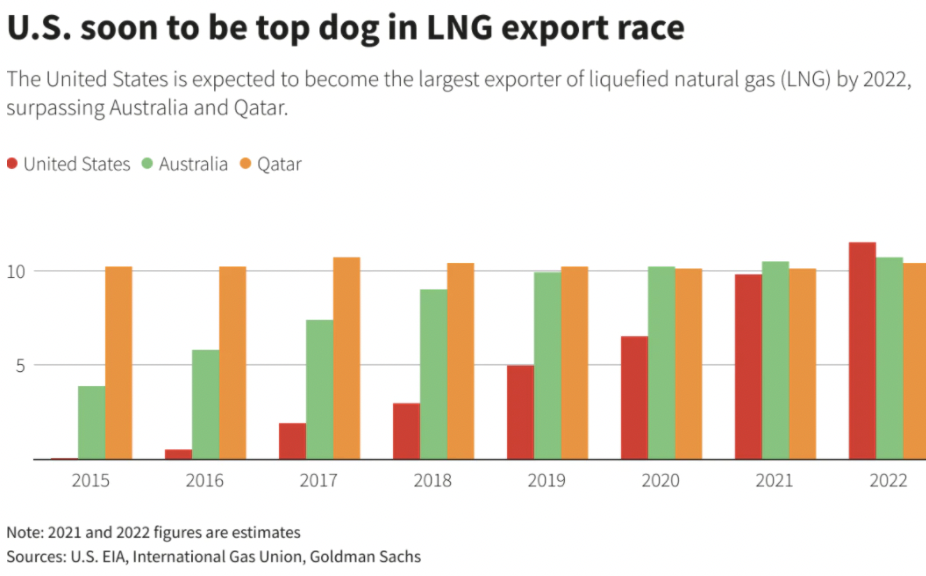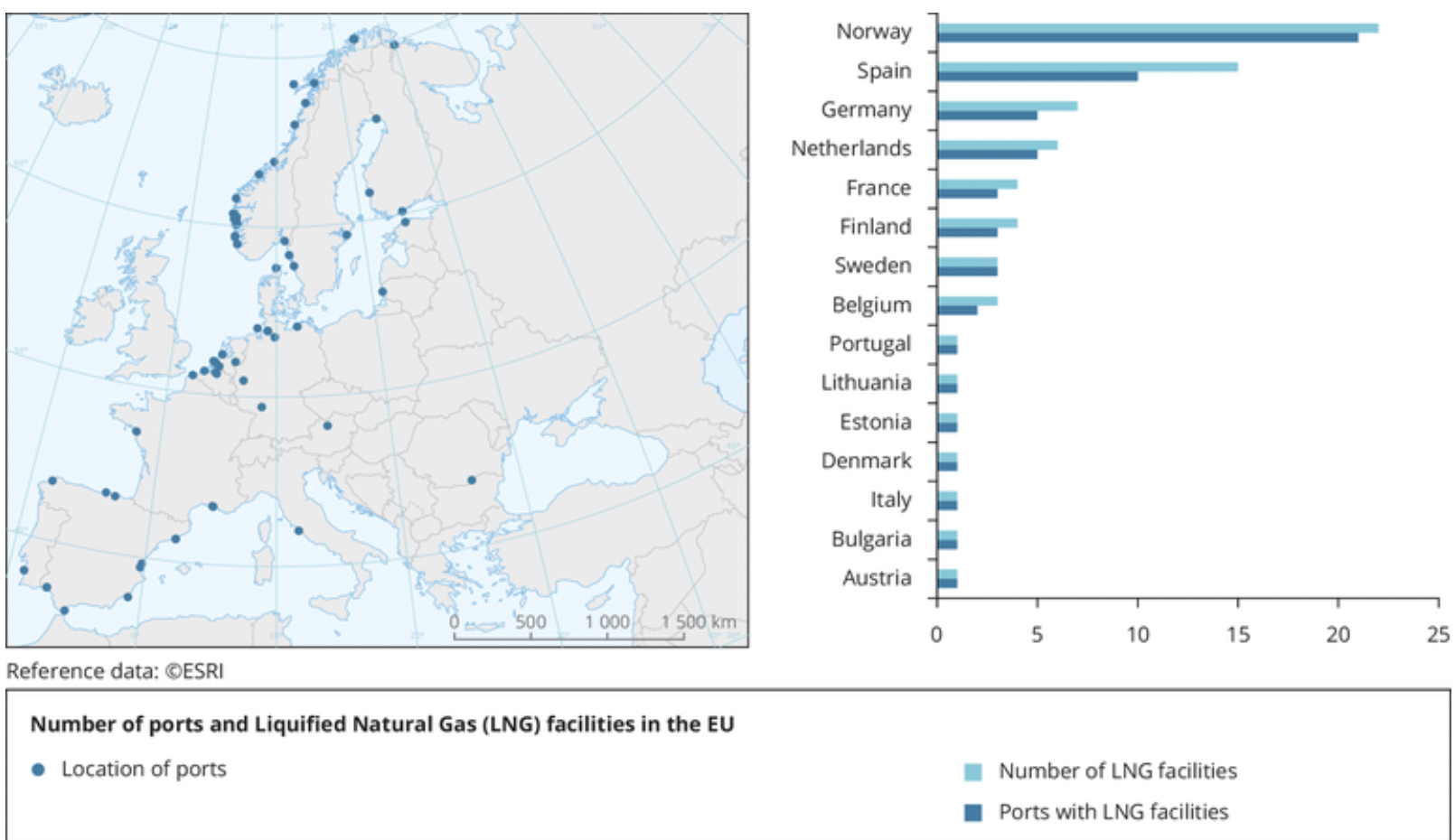Normally considered one of the world’s smartest nations, Germany rang in 2022 by pulling the plug on three of its last six nuclear plants and plans to close the rest by the end of 2022. This policy to de-nuclearize the country has been a disaster and made the country dependent on Russia for energy, putting both Europe and the West at risk.
Germany is Europe’s largest consumer of electricity and natural gas, the fifth-largest consumer of oil in the world, and more than half of all its energy comes from Russia. This dependency, and winter, is why Berlin has broken ranks with its allies and refused to cancel Putin’s gas pipeline to Germany, refused to provide weapons to Ukraine or to let others do so, and frustrated efforts by the Americans to prepare crippling sanctions to avert a Russian invasion of Ukraine.
The historical irony in all of this is obvious: German arrogance + Russian collaboration + Winter = Defeat … It seems some countries simply never learn.
This is the backdrop to the news that has dragged on and dominated, for weeks. A belligerent Russia, that threatens to invade Ukraine, is capable of shutting down Europe’s most important economy by withholding oil and gas supplies, a weapon it demonstrated in August by severely cutting back on natural gas supplies and jacking up prices dramatically. This has had ripple effects because Germany is the world’s fourth-largest economy and financially props up the European Union which also relies on Russia to supply one-third of its oil and gas.
Germany essentially swapped energy self-sufficiency, based on nuclear energy for reliance on a rogue nation. Why? It was the culmination of 23 years of non-sensical energy and environmental policies promoted by the Green Party combined with the actions of two former Chancellors — Angela Merkel and Gerhard Schroder — who were inappropriately cozy with the German-speaking Putin.
Merkel was downright flirtatious with the little dictator while Schroder simply “went native” and has become a Putin insider and fabulously rich “Russian” oligarch with huge influence inside the Fatherland. Schroder championed Putin’s oil and gas, and his new controversial pipeline expansion, and Merkel supported it all, in defiance of all other members of the European Union who knew the pipeline was a dangerous weapon that would undermine European security.

Russia’s energy squeeze play: Nord Stream 1 and 2 plus TurkStream 1 and 2 have made Europe overly dependent
Even more uncharacteristically irrational was Germany’s sweeping and costly de-nuclearization strategy. The country operated 26 world-class reactors, then hopped aboard the Greenpeace anti-nuke liturgy even though nuclear power is the world’s only existing solution to eliminating emissions, not renewables like wind and solar.
This is because when the wind doesn’t blow and the sun doesn’t shine, Germany had to replace its nuclear power with generating plants that could also provide a “baseload” underpinning of power. So it switched from clean nuclear power to plants that burn Russian natural gas and filthy German coal to generate most of its electricity.
De-nuclearization combined with elite capture by Putin has landed the world in this mess. In essence, the current “crisis” is essentially a hostage-taking incident with Germany, Europe, NATO, the global economy, and Ukraine as hostages. In these types of situations, the perpetrator makes unreasonable demands then threatens to destroy a hostage to raise the stakes, in this case, Ukraine.
Normally, negotiations follow, backed by serious threats, to get the victims released, but Germany’s fears about provoking Putin have prevented this. Until now.
To address this, and unite allies against Russia, the United States launched a strategy months ago to provide Europe with enough oil and natural gas from other sources to eventually remove the continent’s reliance on the Kremlin. This has developed quickly and comforted Germany enough to agree to threaten Putin with surprisingly tough sanctions, delivered by the United States on behalf of all NATO members, to Russia yesterday, on January 26.
According to Financial Times, the U.S.-led alliance rejected Russian demands to shrink NATO or ban Ukraine from its roster and also threatened to impose crippling sanctions:
“They have also sought to settle the details of an economic sanctions package to punish Russia if it followed through with an attack. US and European officials have vowed to target Russian banks, cut the country off from the Swift international payment system, impose export controls that would limit its access to western technology, and cripple its energy sector, the biggest source of its foreign reserves. Biden has also suggested that Putin could be personally targeted.”
Early this morning, the Kremlin said the U.S. response to its demands does not offer “much cause for optimism” and Russia’s foreign minister Sergei Lavrov said President Vladimir Putin would now assess America’s response. While the document – delivered by the US in coordination with the NATO military alliance – does not address Russia’s “main concern” about the alliance’s expansion, Lavrov said it “gives hope for the start of a serious conversation” on secondary questions, the BBC reported.
But Putin need not bother. Janis Kluge, an expert at the German Institute for International and Security Affairs, said merely cutting off Russian bank access to the dollar alone would lead to a steep contraction of Russia’s GDP because most global trade, including oil and gas sales, is settled in dollars. Adverse side effects would include capital flight, a ruble crash, and high inflation.
Putting the “boot” to Putin in this way has been long overdue, delayed by Germany, but is the culmination of weeks of effort by America to divert its own tankers filled with Liquefied Natural Gas (LNG) and oil to Europe, along with others. This is the key to stopping Putin’s War against Europe.
LNG is natural gas that has been chilled to liquefy and reduce dramatically in volume for shipping and storage purposes. When LNG is re-gasified and placed into a pipeline it expands 600-fold. Each LNG tanker is 300 meters long – nearly three football fields in length – and holds the equivalent of three days’ worth of Russian gas delivered through Ukraine’s current pipeline system.
This month, as much LNG was delivered into European storage facilities as Russia has shipped into Europe. And Americans scramble to increase this flow and Europeans scramble to expedite the construction of dozens more LNG facilities across Europe to keep it flowing permanently.
This marks the beginning of a new energy architecture to protect Europe, and also represents another existential threat to Russia. By 2020, America had already become Europe’s biggest supplier of LNG, overtaking Russia and Qatar, and there’s room for much more growth, thanks to America’s gigantic natural gas surplus resulting from the shale revolution that began in 2011 in the United States and Canada.

Europe gears up. There are more than three dozen LNG facilities currently in place, and at least 22 more are under construction.

Finally, Europe and Germany realize that Russia is not an acceptable supplier and they cannot remain its hostages. But America’s logistical revolution, involving tankers of oil and gas to Europe, must also be accompanied by European efforts to become more self-sufficient through nuclear power and fracking. That, combined with new oil and gas suppliers, will protect the continent.
Putin, for his part, has played his “plausible deniability” game all along, sending out spokesmen to say that Russia does not intend to invade Ukraine. This hasn’t fooled anyone but will serve to enable a “climbdown”. This is already underway. For example, a meeting yesterday between Ukraine, Russia, Germany, and France was held to discuss a solution to end the low-grade, eight-year war by Russia against Ukraine in its eastern region.
Talks ended without a deal, but parties agreed to reconvene in two weeks. Today, Russia said President Putin will “take some time to” study America’s January 26 response to his demands. Both are “kick the can down the road” techniques designed to save face and de-escalate, as are recent statements by Ukraine’s defense officials downplaying the possibility of an invasion. (Markets reacted immediately and the ruble rose.)
While anything may happen, it appears that finally, the West has brought a cannon, not a knife, to Putin’s gunfight… and is prepared to use it.
Published in cooperation with the author and her Diane Francis Newsletter on America and the World https://dianefrancis.substack.com/about
